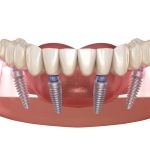Toothaches are one of the most common yet excruciating dental problems that people experience. Whether it's a sharp, throbbing pain or a dull, constant ache, the discomfort can make it difficult to concentrate on anything else. But if you're dealing with a toothache, especially when it strikes unexpectedly, you might be wondering how to get rid of a toothache quickly. In this article, I'll walk you through various methods to alleviate the pain, provide insights into what might be causing the discomfort, and give you tips on what to do until you're able to see a dentist.
The first thing you should know about toothaches is that they can stem from a variety of causes. It could be something as simple as food particles stuck between your teeth, or it could indicate a more serious issue like a cavity, tooth decay, or gum disease. Regardless of the cause, it's crucial to address the pain as soon as possible. While nothing can truly replace professional dental care, there are several home remedies and techniques that can help relieve the discomfort until you get the treatment you need.
1. The Power of Cold Compresses: An Easy and Effective Solution
One of the quickest ways to alleviate a toothache is to apply a cold compress to the outside of your cheek. Cold temperatures help reduce inflammation, numb the pain, and decrease blood flow to the area, which in turn can lessen the intensity of your discomfort. Simply wrap some ice in a clean cloth or use a gel cold pack and hold it against your cheek where the pain is located. Apply the cold compress for 15 to 20 minutes at a time, making sure to take breaks in between. This method can provide immediate relief for a toothache caused by swelling or inflammation.
However, it's important to note that while a cold compress can help alleviate pain, it will not fix the underlying issue causing the toothache. It’s a temporary solution to tide you over until you can seek professional help.
2. Over-the-Counter Pain Relievers: A Go-To for Temporary Relief
Over-the-counter (OTC) pain relievers like ibuprofen, aspirin, or acetaminophen are effective for reducing toothache pain. These medications work by blocking the pain signals from reaching your brain, which can offer significant relief. Ibuprofen, in particular, is a great choice for toothaches since it not only alleviates pain but also reduces inflammation.
Be sure to follow the instructions on the packaging and avoid exceeding the recommended dosage. Keep in mind that while these medications provide temporary relief, they are not a cure for the toothache. If your pain is severe or persistent, make sure to consult a dentist as soon as possible.
3. Salt Water Rinse: A Simple but Powerful Solution
A saltwater rinse is an age-old remedy that can help alleviate a toothache. Salt has natural antibacterial properties, which makes it an excellent choice for reducing swelling and cleansing the affected area. To make a saltwater rinse, dissolve half a teaspoon of salt into a cup of warm water and swish it around in your mouth for 30 seconds before spitting it out. This simple solution can help reduce inflammation, kill bacteria, and clean out food particles that might be contributing to the pain.
In addition to providing relief from the pain, a saltwater rinse can help keep the area clean and reduce the risk of further infection. It's a safe and effective remedy that can be used multiple times a day, especially when combined with other treatments.
4. Clove Oil: An Old Remedy for Soothing Tooth Pain
Clove oil is another popular natural remedy for toothaches. It contains eugenol, a compound that has anesthetic and antibacterial properties, making it ideal for numbing the pain and reducing inflammation. To use clove oil, simply dip a cotton ball or cotton swab into the oil and apply it directly to the painful area. Be careful not to swallow the oil or get it on your gums as it can cause irritation. Clove oil works by numbing the area and providing temporary relief from the pain.
Clove oil can be a great temporary solution if you’re unable to access a dentist immediately. However, like other remedies, it doesn’t address the underlying cause of the pain, so it’s important to seek dental care as soon as possible.
5. Garlic: A Natural Pain Reliever with Antibacterial Benefits
Garlic isn't just great for cooking—it can also help relieve toothache pain. Garlic contains allicin, a natural compound that has both antibacterial and analgesic properties. To use garlic for a toothache, crush a fresh garlic clove to release the allicin and apply it directly to the affected tooth. If you don’t want to apply it directly, you can chew the garlic for a few minutes to let the juices reach the painful area.
Garlic has been used for centuries as a natural remedy for various ailments, including tooth pain. While it may help alleviate some discomfort, it’s important to remember that garlic is not a long-term solution. It is best used in conjunction with other treatments until you can see a dentist.
6. When to See a Dentist: Know When to Seek Professional Help
While these home remedies can help alleviate the pain temporarily, it’s essential to see a dentist for a long-term solution. Toothaches are often a sign that there is an underlying problem that requires professional attention. This could be anything from a cavity or cracked tooth to an infection in the tooth’s pulp. Only a dentist can properly diagnose the cause of your pain and provide the appropriate treatment, whether that’s a filling, root canal, or other dental procedure.
If your toothache persists for more than a couple of days or is accompanied by swelling, fever, or pus, it’s crucial that you visit a dentist as soon as possible. Ignoring the problem could lead to more severe complications, such as abscesses or even tooth loss.
In the meantime, these remedies can help manage your symptoms and make you more comfortable. However, they should not be used as a substitute for professional dental care.
In conclusion, toothaches can be incredibly painful, but there are several ways to alleviate the discomfort while you wait for professional treatment. Whether you use a cold compress, pain relievers, a saltwater rinse, clove oil, or garlic, these methods can provide temporary relief. But don’t forget—seeing a dentist is the only way to properly address the root cause of your toothache and ensure long-term oral health.
If you're experiencing a toothache and need urgent dental care, don’t wait—schedule an appointment with your dentist or visit your local emergency dental service to get the treatment you need.







 Community Health Center of Snohomish County - Everett-North Clinic4.0 (960 review)
Community Health Center of Snohomish County - Everett-North Clinic4.0 (960 review) Corner Dentistry4.0 (42 review)
Corner Dentistry4.0 (42 review) Articolo Orthodontics5.0 (4 review)
Articolo Orthodontics5.0 (4 review) NÜVA Smile4.0 (105 review)
NÜVA Smile4.0 (105 review) Gluck Orthodontics5.0 (859 review)
Gluck Orthodontics5.0 (859 review) Mbrace Orthodontics4.0 (60 review)
Mbrace Orthodontics4.0 (60 review) The Importance of Oral Health Education During Pregnancy for a Healthy Pregnancy
The Importance of Oral Health Education During Pregnancy for a Healthy Pregnancy Best Tips for Brushing Your Teeth Properly for Healthy Gums: Essential Techniques for Oral Health
Best Tips for Brushing Your Teeth Properly for Healthy Gums: Essential Techniques for Oral Health Why Skipping Dental Checkups Can Lead to Bigger Oral Health Problems
Why Skipping Dental Checkups Can Lead to Bigger Oral Health Problems Advantages of Porcelain Dental Restorations
Advantages of Porcelain Dental Restorations How Can Diabetes Cause Tooth and Gum Problems? Preventing and Managing Oral Health Issues
How Can Diabetes Cause Tooth and Gum Problems? Preventing and Managing Oral Health Issues Healthy Habits for Promoting Good Oral Health and Hygiene: Tips for a Healthy Smile
Healthy Habits for Promoting Good Oral Health and Hygiene: Tips for a Healthy Smile